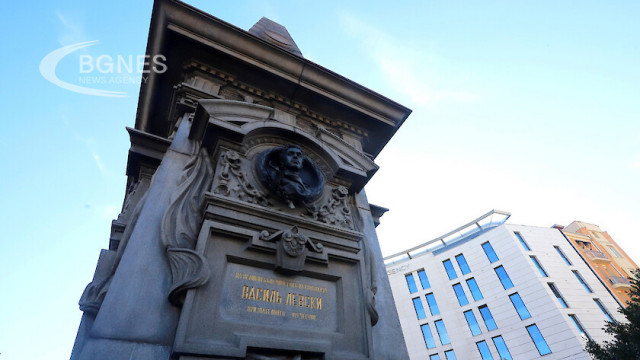151 years have passed since the day the Bulgarian National Hero Vasil Levski was hanged on the gallows near Sofia and became a legend. These years mark not the death, but the immortality of the Apostle of Freedom, as he is known throughout Bulgaria by virtually everyone.
On February 19, Bulgarians kneel again in front of Levski's monument in the center of Sofia. It seems that for the Bulgarians the greater holiday is the hanging, not the birth of the Deacon (as Levski was also called, due to the years he spent as a monk - editor's note). Various explanations have been given for this. Is it the feeling of guilt that no one at the time was able to save him on his way to Sofia, is it because we honor the Resurrection more than the Nativity because after his death Levski rose in the people's memory? A saint who left the church, a revolutionary, who preached the European idea of understanding among all peoples, a fighter for national freedom who does not try to limit the freedom of others, an ascetic, and a fighter against corruption, as it is now fashionable to call him, without being himself corrupt.
Although Levski's portrait is still behind some politicians and statesmen, it is only a decoration for their rather controversial decisions and actions from a democratic point of view. And we are not yet a "pure and holy republic", as Levski wanted, despite some of their statements. And again we lack freedom.
There are many historical and literary mystifications, and one of them is related to the famous stanza from Hristo Botev's poem about Levski. The researcher of Botev's work Iliya Todorov claims that the authentic stanza about the gallows in the poem "Deacon Vasil Levski" is not "hangs on him with terrible force", but "With terrible force winter sings its evil song". This happened because of a displaced couplet and punctuation in the later edition of the poem by Zahari Stoyanov, and so it starts as a catchphrase that has turned into a template.
We can hardly sift out everything brought to the image of Levski, and in general to our history and literature, but in any case, Levski remains the greatest Bulgarian. And what do we need it for - everyone can answer for themselves, as Prof. Genchev said in this distant year 1987 for us - but not to tell the children - don't break this bench, because Levski wouldn't have broken it. "Because it is a national capital that permeates the historical memory and the national consciousness, creates national self-confidence, creates opportunities to see what is bad and what is good, creates opportunities for us as individuals to compare ourselves, as a people to compare ourselves. This is the great dimension of Levski", says Prof. Nikolay Genchev in a documentary from 1987 - "Levski and us".
Vasil Levski was captured on December 27, 1872, at the Kakrina Inn. To this day, it has not been proven who was the betrayer of the Apostle. Hours after his capture, the Turks did not know exactly who they had detained. The apostle was taken to Sofia, where he was put on trial. Vasil Levski builds his defense based on the rights of Christians, according to the Turkish Hatihumayun, in order not to betray someone and the internal revolutionary organization. Several times he stated that he was looking for legal ways to change life in the Empire. Levski dissociates himself from the activities of Dimitar Obshti to avoid criminal charges. The death sentence was issued on the 14th and was confirmed on January 21, 1873. The trial ended, and according to historians, the commission that tried the Apostle usurped the functions of a court, which is inadmissible under the laws of the empire itself. 60 defendants were sentenced to prison and exile and two were hanged - Dimitar Obshti and Vasil Levski. The apostle hung on the gallows on February 18, 1873, but traditionally the date is marked on the 19th - then he was not yet 36 years old. /BGNES






